How Can I Upskill in Customer AI Without a Data Science Degree?
You don’t need to code to lead Customer AI. What matters is the ability to frame customer problems, organize data around the journey, and connect predictions to revenue. That’s exactly why we built the Customer AI Masterclass — to help CX, CS, and RevOps leaders gain the frameworks and certification that prove impact.
The Myth That Keeps Leaders Stuck
Most assume AI ownership belongs to data scientists. That belief is costly. Models don’t fail because of math; they fail when the business question is vague, the data isn’t structured around the customer journey, or no one is accountable for action. In the Customer AI Masterclass Lesson 3.5: Targets of Prediction, we talk about why account-level outcomes — not individual scores — are the real target in B2B. That shift alone shows why domain leaders, not just data scientists, need to own Customer AI.
What Customer AI Really Asks of You
Think in systems, not tools. The work is threefold:
- Framework thinking. In Lesson 3.3: Data Architecture, we explain how to organize attitudinal, operational, and financial data where it occurs in the journey and who owns it. Then in Lesson 4.2: Insights Framework, we show how to move up the curve from reporting to prediction and prescription. Finally, Lesson 5.4: Action Framework makes sure every insight routes to a human, a team, or an agent who will act.
- Metric literacy. In Lesson 1.3: CX Metrics and Predictive NPS, we reset the role of surveys — they’re training data, not the scoreboard. Lesson 3.9: Attribution explains why you need to connect predictions to operational drivers, and Lesson 6.4: The Customer AI Financial Model shows how to tie it all to NRR and CLV.
- Outcome orientation. In Lesson 6.4, we frame Customer AI as a growth system: detect risk earlier, fix the drivers with highest impact, and prioritize expansion where propensity is rising.
The Frameworks That Replace Code
Customer AI runs on seven building blocks. Learn these, and you can steer any platform:
- Three Amigos — Generative, Predictive, Prescriptive AI (Lessons 2.3–2.4).
- Data Architecture (Lesson 3.3).
- Insights Framework (Lesson 4.2).
- Action Framework (Lesson 5.4).
- Targets of Prediction (Lesson 3.5).
- Minimum-Viable Data Engineering (Lesson 3.6).
- Attribution (Lesson 3.9).
In Lesson 2.3, we talk about how Generative AI fills gaps to give a complete daily profile of every account. In Lesson 2.4, Predictive forecasts the likely future, and Prescriptive converts those forecasts into Next Best Actions. None of this requires writing code — but it does require clarity and ownership.
A Practical 90-Day Plan
- Weeks 1–2: Define one measurable goal. In Lesson 1.2: Customer Journeys, we show how to map basics, satisfiers, and delighters to identify what matters most.
- Weeks 3–4: Build a minimum-viable dataset. Lesson 3.6: Data Engineering explains how to start with “good enough” data and prove value quickly.
- Weeks 5–8: Generate predictions. In Lesson 3.9: Attribution, we stress that every prediction must explain the “why.”
- Weeks 9–12: Prescribe and act. In Lesson 5.6: Customer AI with Prescription, we cover how to turn signals into concrete NBAs and route them to the right owners.
Why Certification Accelerates the Journey
The Customer AI Masterclass certification signals that you can run the full loop — structure data around the journey, drive prediction, route to action, and prove financial impact. In Lesson 8.3: The Customer AI Leader, we outline the career profile of professionals who master this skillset: analytics literacy, strategic influence, and operational command.
Bottom line: You don’t need a data science degree to run this playbook. In Lesson 7.2: The Maturity Model, we emphasize that what you need is discipline, clarity, and ownership — and the frameworks to connect customer initiatives directly to revenue.

